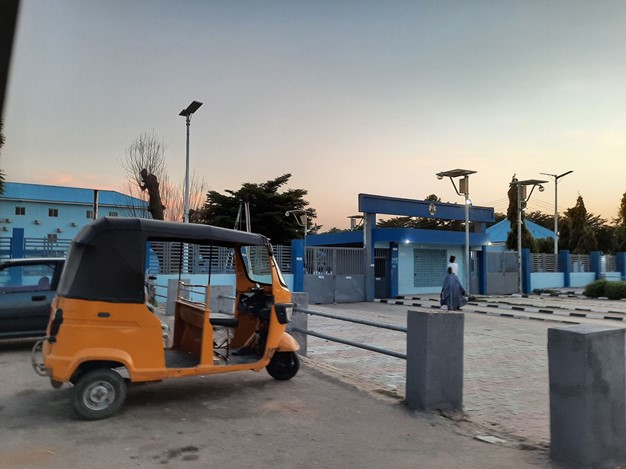2 Former Detainees Die Shortly After Release From Gombe Rehabilitation Camp
HumAngle gathered that two others became blinded in the course of participating in Nigeria’s central deradicalisation programme.

Two of the recently released participants of Nigeria’s Operation Safe Corridor (OSC) programme have died after a period of critical illness, pointing to worsening conditions at the site.
Earlier in April, over a hundred participants, known officially as ‘clients’, were released from the camp located in Mallam Sidi, Gombe State, to a holding centre in Maiduguri, capital of the northeastern state of Borno.
However, 11 others were taken instead to the Umaru Shehu Hospital, also in Maiduguri, because of severe health conditions. Out of these, HumAngle gathered that two of the former clients passed away and two others, who had become completely blinded, were released to their families.
One of those hospitalised had contacted his wife, a member of the Knifar Movement, to inform her of his condition. Knifar, an advocacy group, was formed in 2017 by women whose partners were victims of prolonged detention without trial because of suspicion of being members or supporters of the terror group, Boko Haram.
Some of the affected clients blamed the deterioration of health and deaths mainly on “hunger and deprivation” at the Mallam Sidi camp.
HumAngle understands that while one of the corpses has been released, the second is still at the state hospital.
In July 2021, over a thousand detainees at the Giwa military detention centre and Borno Maximum-Security Prison were cleared for release by the Nigerian Army, which confirmed that they had been found innocent of terrorism charges.
Hundreds of those released, especially from the maximum-security prison in November, were transferred to Gombe for deradicalisation, rehabilitation, and rehabilitation (DRR), a programme that is “backed by millions of dollars in support from the EU, UK, USA, and other partners”.
OSC was launched in 2016 to rehabilitate “repentant Boko Haram militants” and introduce them back to the society as law-abiding citizens after a six-month programme. Interviews with several former clients however indicate that many of those transferred to the facility were, in fact, not militants or members of the terror group.
Though conditions at the camp have been described (especially by members of the earliest batches) as better than what obtains at the various detention facilities, there have still been cases of people falling critically ill or dying.
Amnesty International reported in May 2020 that, according to former detainees, medical care was “sorely lacking” at the camp.
“Seven detainees died, many, if not all, after receiving inadequate medical care. The Nigerian authorities did not even notify their families – they were informed by released detainees instead,” it said.
“The programme also subjects some detainees to unsafe work conditions. Some detainees suffered serious injuries to their hands after being made to work with caustic soda, a highly corrosive substance, without protective equipment.”The same number of deaths was mentioned by a former client who spoke to HumAngle in 2020 and was himself sick during the programme, experiencing swelling in his tummy and limbs. He had blamed his illness on malnutrition.
Support Our Journalism
There are millions of ordinary people affected by conflict in Africa whose stories are missing in the mainstream media. HumAngle is determined to tell those challenging and under-reported stories, hoping that the people impacted by these conflicts will find the safety and security they deserve.
To ensure that we continue to provide public service coverage, we have a small favour to ask you. We want you to be part of our journalistic endeavour by contributing a token to us.
Your donation will further promote a robust, free, and independent media.
Donate HereStay Closer To The Stories That Matter




